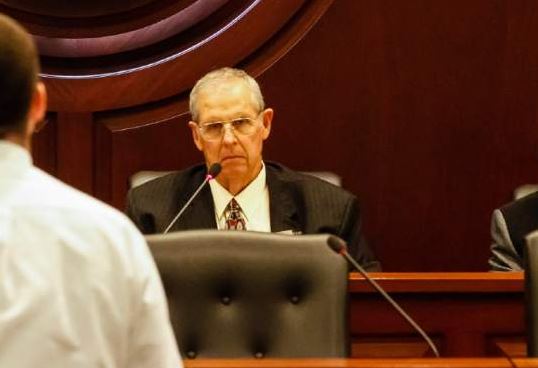Idaho Anti-Slot Legislation Fails to Hit the Jackpot
Posted on: February 22, 2017, 02:00h.
Last updated on: February 22, 2017, 02:25h.
A bill in the Idaho legislature seeking to prohibit electronic gaming machines at the state’s tribal casinos received a pounding this week from state AG’s office.

Under the Indian Gaming Regulatory Act of 1988, tribes have the right to offer class II gaming, defined as bingo and non-”house-banked” card games like poker, without permission from the state, provided that the state permits such gaming elsewhere within its borders for any purpose.
Class III gaming, defined as casino-style gaming and slots, is more complex and requires a special dispensation from the state in the form of a compact.
Since Idaho outlaws class III gaming, tribes were prohibited from offering slots at their gambling houses until someone had the bright idea to offer machines that were a bit like slots but not exactly slots.
Pseudo-Slots
In 2002, the tribes managed to get a measure on the ballot that amended the law to permit the operation of gambling machines that had no levers and dispensed cash-out tickets instead of coins.
Certain lawmakers were displeased, believing that the tribes had exploited a legal loophole. There were unsuccessful attempts by the legislature to ban the machines in the courts in 2006 and 2009.
The latest attempt comes in the form of a bill presented earlier this month by Representative Tom Loertscher (R-Iona). It proposes removing a section of the 2002 law in order to permit the prohibition of the machines even if they are bereft of levers and coins. He says he wants to bring the tribes in line with the ban on casino gambling in the state.
Unsurprisingly, the tribes are unimpressed by Loertscher’s bill.
“The people have spoken and the matter in question was decided years ago. It has been thoroughly evaluated and litigated with significant effort and expenditures on the part of both the State of Idaho and the tribes,” said Blaine Edmo, chairman of the Fort Hall Business Council, in an official statement last week.
“This misguided effort to unilaterally change a legally agreed-upon compact without input from the tribes stands only to waste taxpayer dollars and everyone’s time.”
DA’s Two Cents
House Assistant Minority Leader Ilana Rubel said she was concerned about the tribes, describing the bill as “an effort to bring them to their knees.”
An attorney general’s legal review, requested by Rubel, found the bill to be wanting, with holes in its language, and said it would likely fail in its objective.
Assistant Chief Deputy AG Brian Kane said that since none of the compacts between the tribes and the state have a termination provision, they cannot be changed until they expire or are renegotiated.
Even then, the state would have to prove that the act of liquidating the tribes’ most lucrative revenue source was “reasonable and necessary,” to which the likely answer would be “no.”
Just like the tribes’ slots, it looks like Loertscher doesn’t have a lot of leverage here.
Related News Articles
Pennsylvania Gambling Expansion Could Take a Year to Enact
Most Popular
Genovese Capo Sentenced for Illegal Gambling on Long Island
NBA Referees Expose Sports Betting Abuse Following Steve Kerr Meltdown
UPDATE: Former Resorts World & MGM Grand Prez Loses Gaming License
VEGAS MYTHS RE-BUSTED: The Traveling Welcome to Las Vegas Sign
Most Commented
-
UPDATE: Whiskey Pete’s Casino Near Las Vegas Closes
— December 20, 2024 — 33 Comments -
Caesars Virginia in Danville Now Accepting Hotel Room Reservations
— November 27, 2024 — 9 Comments -
UPDATE: Former Resorts World & MGM Grand Prez Loses Gaming License
— December 19, 2024 — 8 Comments -
FTC: Casino Resort Fees Must Be Included in Upfront Hotel Rates
— December 17, 2024 — 7 Comments
















No comments yet